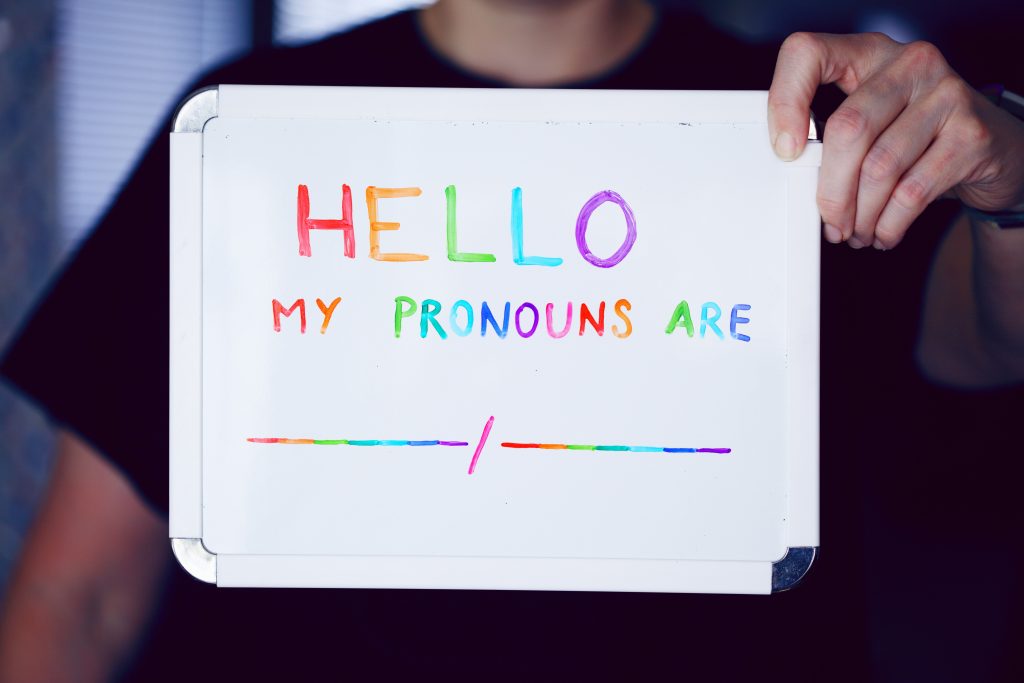When I was 16 years old, I choreographed a “ballroom dance” for our rendition of the beauty and the beast for the college International French Day. While I was trying to source gullible and enthusiastic peers into dancing, a friend of mine suggested I ask a boy from our class who is a wonderful dancer. He was in the middle of transitioning and my extremely unaware self misgendered him a good 2-3 times before realizing what I was doing. Not only was what I did hurtful to him but mortifying to me. I spent the next couple of days gathering as much information as I could and learning about everything I was unaware of when it came to pronouns.
Understanding pronouns
Pronouns are not just words we identify with other than our names, they are integral to our sense of self. And to take someone’s sense of self away because of our need for convenience or ignorance is unfair to everyone. Gender pronouns include She/her, He/him, and They/them. Traditionally, the pronouns he/him were associated with the male sex and she/her with the female sex. But not every biologically male individual identifies with the pronouns he/him and neither does every biologically female individual with she/her and thus chooses the pronouns they wished to be referred with.
They/them pronouns are used by people who do not identify with the binary of he/she pronouns. Mixed pronouns such he/they or she/they mean that those individuals can be referred to using either of those pronouns.
Why are sharing pronouns important?
Not only does sharing pronouns imply that cis-gendered people are aware of the importance of pronouns, but it also lets people know you’re an ally. Recently, Zoom rolled out a feature to share pronouns. This feature came for helping people express themselves better and to establish that someone’s appearance doesn’t necessarily imply their pronouns.
Asking someone theirs
There are some respectful ways of asking people their pronouns.
- My name is (your name) and my pronouns are (/) (leaving space for the other to choose to share their prefered pronoun with you)
The most important thing while asking someone their pronouns is to be kind and respectful.
Misgendering
When we make a mistake and refer to someone using the wrong pronouns, it is known as misgendering. Making mistakes is fine as long as we acknowledge them and persevere to be better. If we do end up misgendering someone, the best thing to do would be to apologize, refer to what pronouns you intended to use, and move on. Dwelling on the mistakes gives it an unnecessary spotlight and puts the concerned person in an uncomfortable spot.
It is also important to practice and keep in mind the changing dynamics of the gender spectrum. Language has always been evolving. If the use of certain pronouns helps an individual feel more like themselves, then it is upon allies to make it easier for them isn’t it?


